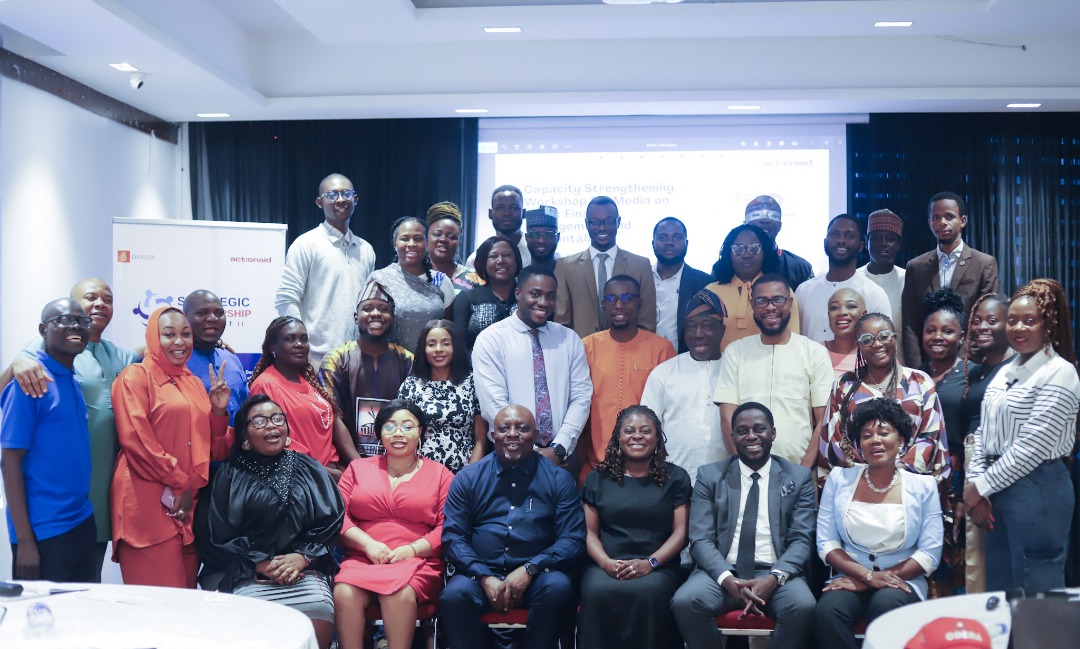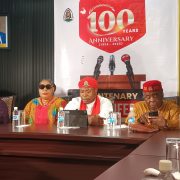Prioritise Gender-Responsive Budgeting to Reduce Poverty, Inequality, ActionAid Urges Govt

By Ndifreke Enefiok, Uyo
With poverty deepening across Nigeria despite rising public expenditure and recent economic progress, ActionAid has urged government at all levels to prioritise gender-responsive budgeting and public service delivery to help reduce inequalities.
ActionAid, a non-governmental organisation, made this known during a 3-day workshop on Capacity Strengthening for journalists on Public Finance Management (PFM) and Accountability in Lagos State.
The workshop, organised with support from the Danish International Development Agency (DANIDA), under the Strategic Partnership Agreement (SPA II) programme, had journalists drawn from Akwa Ibom, Lagos, Borno, Abuja, Enugu States in attendance.
The training aimed to familiarise participants with ActionAid’s new strategy that places emphasis on citizen-led governance and social media while enhancing their ability to access, analyse and interpret budget and fiscal data.
Speaking at the workshop, ActionAid’s Head of Programme/Policy, Mr Celestine Okwudili Odo, who represented the Country Director, Mr. Andrew Mamedu, stressed that budgets must move beyond figures on paper to address real-life needs of Nigerians.
“A budget is not just about billions and trillions; behind every budget line is a real story: a child waiting for a school, a community hoping for clean water, a hospital that needs equipment. The way public money is managed affects everyday life for millions of Nigerians.
This is where you, the journalists, come in. You have the power to dig into the numbers, connect them to people’s realities, and make sure those in power know that citizens are watching. Your stories can spark conversations, influence policies, and hold leaders accountable,” he said.
Odo explained that the organisation’s goal is to contribute to lifting five million Nigerians out of poverty over the next decade, noting that this cannot be achieved without the support of the media, by connecting budget lines to human realities and ensuring public funds are spent on initiatives that benefit ordinary citizens.
On Nigeria’s fiscal realities, Odo lamented that despite increased expenditure in the 2025 budget, which more than doubled from the previous year, poverty and inequality are still alarmingly on the rise. He linked the problem to bloated budgets, weak revenue mobilisation, current borrowing practice, and misplaced spending priorities by the government.
“Why is it that public finance expenditure annually keeps increasing, but at the same time, poverty keeps increasing? From 2024 to 2025, our public expenditure has doubled, yet poverty is not reducing, why?” he queried.
According to him, “The 2025 Appropriation Act reveals an 18 billion naira budget deficit alongside lagging implementation of social protection policies. Nigeria’s debt servicing burden exceeds 70% of national revenue, severely constraining investments in essential public services.
Current borrowing practices often directed toward recurrent expenditure and non-essential projects are not geared toward productive growth. The country’s increasing dependence on private creditors under opaque and unfavourable terms has deepened the debt crisis, with interest payments alone consuming over 30% of revenue. This has diverted fiscal resources from healthcare, education, and infrastructure, imposing significant social and human costs and shrinking the national fiscal space,” he stated.
ActionAid’s Head of Programme maintained that gender-responsive budgeting is key to addressing these budgetary trends, since it prioritises the needs of citizens particularly in the allocation of resources.
Outlining the training objectives, SPA II Project Advisor, Blessing Ifemenam, stated that its goal is to build journalists’ understanding of PFM concepts, processes, and frameworks in Nigeria.
She noted that “The purpose of this project is to improve and increase revenue collection and tax transparency in Africa by advocating for stronger fiscal policies in the extractives sector; advocate for increased tax-to-GDP ratios through progressive tax measures, and increase the capacity of civil society, social movements, and investigative journalists to engage in budget monitoring, anti-corruption work, and tax transparency.”
Presenting a lecture on Overview of Nigerian Fiscal Instruments: Understanding the Regulation and institutional Framework for Public Financial Management in Nigeria, Terfa Abraham PhD, underscored the need for journalists to understand fiscal laws, revenue frameworks, and the new Tax Reform Act signed by President Bola Tinubu, which will take effect from January 1, 2026.
According to the public finance analyst, “The role of the media is to engage the public on the reforms that the government is doing particularly the Tax Reform Act with the four of them, the Nigerian Tax Act 2005, Nigerian Tax Administration Act 2005, Joint Revenue Act 2005, Nigeria Revenue Service Act 2005. The name may sound like tax but it’s beyond tax, it is to ensure that we have an economy that encourages nano businesses to grow to small, small to medium, medium to large by removing the shackles that hold them from growing.”
While sharing insights on the new tax reform act and the need to keep the public informed, Abraham noted that the Act has changed the revenue collection landscape in Nigeria by enhancing, strengthening intergovernmental coordination, and repositioning the tax system to support inclusion.
He stressed that the reform would ease the burden on low-income earners who are exempted under the new reform framework, but urged journalists to educate the public on the importance of paying taxes so that the government can generate the revenue needed to deliver projects that directly citizen’s lives.







